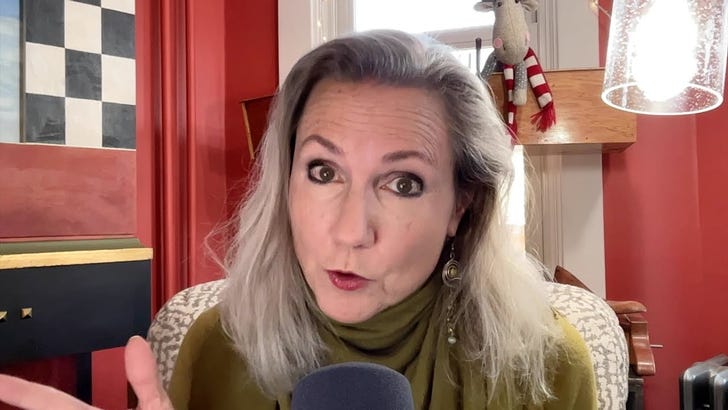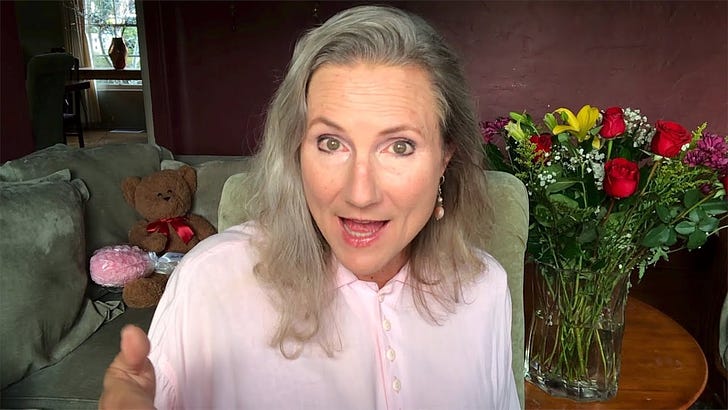Dreaming & Scheming
conversations with William Hunter Duncan & John Wright
In my last episode, Caretology, I looked at the rules and decisions that YOU would need to make in your community, and I laid out what I would do. Someone objected that they didn’t want to be czar. Of course, no one is going to appoint us czar, even if we did. I must admit that Czarina Tereza had some nice alliteration and rhymes in it, but this is a fiefdom in our mind that we’re designing.
The architects of a commonwealth (this means you) would come up with a set of rules they think would work and then test out their model in a simulation. Whichever plan predicts the most circuits for carets wins, creating new goods and services before they’re cashed out. Extra points for kludging other people’s modules or having other people steal yours.
What we’re trying to do is challenge everyone to be the adults in the room rather than the whiny brats saying, “That’s not fair!” Instead of acting helpless by assuming ‘they’d never let us get away with it’, come up with your own rules for what works. But it can’t be video games in your parents’ basement with pizza delivered, as I accused Russell Brand and Krystal Ball for their system. Your parents are not your servants and your siblings are not your slaves, no matter what Noah says.
This is essentially what Universal Basic Income is. It creates no goods or services to back the money it generates out of nothing. Instead, it assumes that a global workforce will continue to produce our food, make our stuff, and mine our fuels in return for nada from our labor. Someone might want to check in with Russia and China on that as a long-term expectation.
My principle, as you know, is to enthusiastically love the person and relentlessly challenge the ideas. That runs counter to our idea of common courtesy, which is “But I thought you were my friend, why are you arguing with me?” There is NO point in arguing with anyone unless you’re friends, unless you have a basis of trust and even affection. That’s a constructive argument.
I was pleased to get several responses from friends that did challenge my plan and some in response to specific problems and projects. This is where the system comes alive! The rules and decisions are abstract and hard to grasp but my hope is that you’ll start thinking in terms of how YOU would accomplish what you want. This is a metanoia, in the original sense of a whole new way of seeing. It’s a habit to develop of taking responsibility.
Although women are prone to saying, “My mind doesn’t work that way,” if you are a mother to more than one child, it certainly does. If I had given my three children a UBI allowance, one would have saved it, one would have spent it and borrowed more, and one would have complained it wasn’t enough. That’s why I developed my economic model first as a parent and then looked at how to scale it up.
In this episode, I’m going to elaborate on two conversations. The first was with William Hunter Duncan, who writes Born on the Fourth of July, and the second was with John Wright, who writes Intellectual Musings.
I featured William in my Tonic Masculinity series in an episode called Sacred Masculine. In fact, he provided the best example of what I’d meant by the term when he wrote, “A man has skills. If you don’t have any skills (in something other than video games) if you are functionally useless, then you are not much of a man. There really is no excuse. Get skilled.”
He recently published Food Forest, Farm & Restaurant on his efforts to transform a flooded golf course in Minneapolis when he lived there.
I commented:
My principle is that it's easier to transform everything than it is to transform any one thing without transforming everything, because the former may be hard but the latter is impossible.
It's hard to get people interested in the abstracts of economics. It's when you start thinking about specific projects like this and how easily they could be done under the new system that they become exciting. This is just the sort of idea that would flourish in Duncanville, your vision of the future possible under my system.
In Santa Cruz, I've had my eye on Wilder Ranch, a former cattle ranch that's now a state park with land that's been degraded and needs to be restored with regenerative agriculture using good animal husbandry practices. I picture each block of the Westside, closest to it, having a plot of land and two days a week when a shuttle takes them there, to work under people who know what they're doing while others prepare lunch at the ranch house. Food is something we should all be involved in!
He replied:
I'm still trying to understand how you would build something like this with carets, if a caret cannot be used for private gain, and the amount of carets issued to any one person is limited? Building anything large like a house or business requires a great deal of capital, regardless what it is called. How could one build a business too if carets cannot be used for private gain?
I answered:
As a public bank, the commonwealth can issue debt in dollars against any property within its borders. So if the golf course was owned by outsiders, it could issue the dollars using eminent domain to buy them out. But then it becomes transferred into carets for repayment, as a debt to itself. So it can issue those carets to repay the debt over 30 yrs to the community it serves, maybe at the hamlet level of thousands of people or a village of tens of thousands?
The commonwealth could also issue the debt against the property to give the hamlet or village the money to develop the golf course into a food forest, farm and restaurant. The debt would be issued in carets, so that internal labor would be cheap and tax-free. But if they needed to get materials and equipment from outside, they can always do a 2:1 cash out of carets for dollars.
If this were my fiefdom, I'd make that loan contingent on the commoner group agreeing to double the caret loan repayment with their own funds for an operating budget. So let's say their loan repayment, including interest, came to ^7.2M. Over 30 yrs, that's ^240K a year or ^20K/mo. Divided by 2000 people, that's 10 bucks a month. The debt repayment is issued monthly to the hamlet as a whole and comes right back to the commonwealth bank. But this match comes from earned money and creates ^240K a year to pay salaries or hourly wages or buy materials.
In return for their investment, those 2000 people would have membership privileges to partake in the farming and harvest, and get discounts at the restaurant. There might be farm boxes they can buy into, if they're not sharing in the work, and even prepared or ready-to-cook meals. They'd have priority over outsiders for jobs there, that can't exceed the maximum wage set by the collective. They'd have voting rights over decisions.
Complicated, I know, but exciting once you see what's possible. No?
And then John Wright of Intellectual Musings wrote an entire post on what he called my intriguing new financial system, called Carets or Carrots? complete with a lovely picture of fine, healthy carrots!
I responded in a comment that I’ll break up with his points and questions. I’m so happy he wanted to keep the discussion going! John wrote:
I believe the most common mortgage is a 30 year mortgage and many of us have paid it on a single income. The mistake I believe most people make is to keep upgrading to a more expensive home which tends to keep people in debt forever.
I replied:
My book gives a lot of the background on the current economic system that I couldn't include in my article. One book it cites is The Two-Income Trap by Elizabeth Warren and her daughter. It talks about the over-consumption myth that people are buying McMansions and spending more on unnecessary stuff. It shows that people spend less of their income on food, clothes, and stuff than 50 years ago. We buy new cars less often. We live in fewer square feet per person but pay a far greater proportion of our income for it. Most of our income goes to what I call the Unaffordable 4H: Housing, Healthcare, Higher Education and Hope for Retirement. Universities have gone up 700%. Most bankruptcies are from medical expenses, not consumer purchases.
But as it says in the title, two incomes were a trap. We bid against others with as much debt as we can afford for the same house. If you're bidding with two incomes, you'll get the house. For my parents, women rarely worked outside the home. I was able to do that because I bought my home 40 yrs ago (before I met my husband) and never sold, as you recommend. But unless they live in my house, my daughters will never have that choice. Two incomes are the norm in the housing market.
He continued:
Inflation is the increase in money supply. Bankers and governments have been pulling this scam over and over through history. “Print money” and pretend everything is wonderful until the entire system collapses and we start over again.
I answered:
Another important thing to understand is that since the Federal Reserve Act, the Federal Government doesn't have the right to issue credit or bills of currency. The Constitution, when it says that only the Federal Government can coin money, has been rendered literally. That's why your dollar bills say Federal Reserve Note and not US Treasury Note. The Constitution was written to prevent states from issuing their own currency but it ended up preventing the Federal Govt when money creation was usurped by the bankers.
So that's why the right of seignorage is the last loophole for money not borrowed from the central bankers. The Federal Government (it burns me that they even stole the short version of Fed) can issue coins and give them any value it wants. So it could print three platinum coins, give them the fiat value of a trillion dollars each, and use them to replace the Social Security Trust Fund, issuing $9000 per person as capital to each commonwealth bank. This is also a bribe to the gov't because the trust fund has been a slush fund so they don't have it to give back. This plan saves their bacon ;-)
John asks:
Tereza’s “Social Security” system isn’t making sense to me. I’ll need this explained to me in different words and perhaps some examples.
I clarified:
Social Security is a beautifully designed system and I'd put Frances Perkins on those platinum coins. It just needs to be fulfilled at what was promised to participants when they put the money in. Commonwealths would be collecting the tax and investing the trust fund in their own mortgage-backed bank, so they just need to make sure they're distributing benefits. In my own fiefdom, there's only one thing I'd change. I'd up the maximum for a married couple, even if it came out of one income, and I'd divide the benefit equally whether still married or divorced. Currently the non-working spouse gets half of what the working spouse does and it maxes out at full retirement age. Since the non-working spouse is typically more involved with the kids, that doesn't make sense to me whether they stay married or not.
As the interest on the SS Trust Fund builds up, I think I'd look at lowering retirement age back down to 65 and late retirement to 68. But I'd save that as a reward for when the system's working!
He summarizes and queries:
If I’m understanding the caret system, the caret is used as local money. Which as far as I can tell would be 99% just spent on real estate. Although it seems to have a very steep protectionist tariff (50%) to encourage local production (paid for in carets).
When people exchange dollars for carets, who is getting the dollars?
This is an excellent question and I responded:
Right now 97% of money is created through mortgages. But with 5.3% interest, 194% of that money is being spent on real estate because it needs double to pay back the banks with principle and interest. That's why inflation is built in. Under my system, the carets to pay it back are generated monthly but it can't be used for that without being earned from someone else. As a targeted dividend, it needs to create at least one exchange of goods or services before it can be used to pay the rent or mortgage--which is how it differs from just distributing it as UBI.
And yes! When people exchange dollars for carets, it goes into the commonwealth cash reserves. So let's say that you let commoners who earn dollars do a 1:1 exchange up to $3000 per month to spend on housing, local services and goods. The $3000 can then allow ^6000 carets to be issued as dividends in the commonwealth, because they could only be cashed out with half going to tax. So the dollars coming in benefit everyone.
I have skipped over all the points of agreement, but ended with:
Glad you appreciate the maximum wage! And it's Ben Franklin, whose system mine is based on, who thought that 5% was the right interest on a house and 3% to finance one already paid off (an equity loan in today's jargon). Thank you for being in my brainstorming thinktank, John!
And thanks to William, John and all of you for dreaming and scheming with me!
Describes how to break the power of the bankers and enable distributed economic anarchy, which is self-governance, not chaos. The system change in my book, How to Dismantle an Empire, gives commonwealth banks the sole power to issue mortgages and the credit to repay them. I look at three rules that make it corruption-proof and eight questions for you to decide as czar of your fiefdom.
In Russell Brand's intro to his interview with Krystal Ball, he talks about creating an Adjacent Nation with no mortgages, taxes or student debt. From my book, How to Dismantle an Empire, I describe my Regeneration Nation that turns debt and taxes into a system of community reciprocity. I reimagine money as the blood of the body politic, bringing energy. Krystal compares the populism of Bernie Sanders to the 1930's agrarian movement. Using The Wizard of Oz, I show how they differ and what we can learn from those politically savvy farmers.
William Hunter Duncan continues in the theme of Tonic Masculinity by writing what being a man means to him. This includes having skills, protecting who and what you love, and re-enchanting the world. I quote Sylvia Federici's book by that name and Peter Linebaugh on his definition. William writes about being a son returning to help out his parents, and I add my own experience in that realm.





So I think one reason it’s hard to grasp your ideas is because we are all numbed to our potential and our real power. I know many people say this, but this is my growing wheelhouse- I can help un-numb people. If I can grow in my personal power, and I still have plenty of room for growth, then anyone can.
I’m making some videos about this, geared towards people interested in personal growth or who have performance anxiety, but they could be directed to all of us who feel overwhelmed by the world. I’m regularly taking my own medicine on this, so I can grow up too!
Healing from performance anxiety truly is possible:
https://youtu.be/gQu77QJMKOM?si=0pzmXlMTbwjKl1Kw
Anxiety- better safe than sorry?
https://youtu.be/OO8EFAPBs7k?si=s9xSVCCRHYeApNcK
You got me thinking with your previous article and I now felt compelled to mention this. I created a 'book mention' rather than fill your comment section ...
"Manifesto for the Abolition of Enslavement to Interest on Money" - Gottfried Feder (1919)
https://juliusskoolafish.substack.com/p/manifesto-for-the-abolition-of-enslavement